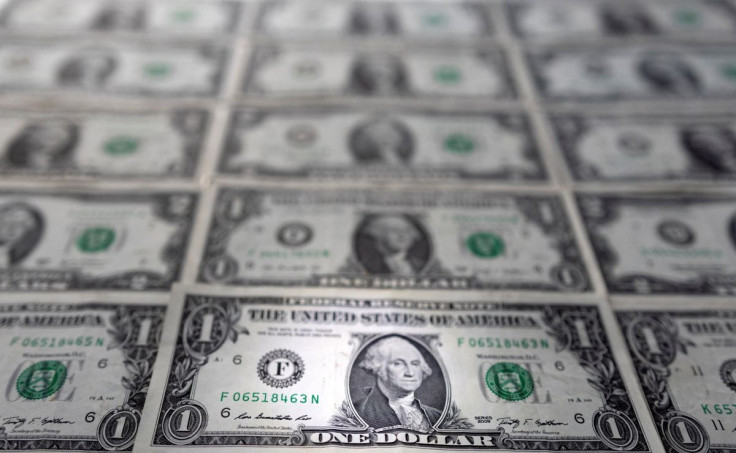Dollar On Backfoot Ahead Of Key U.S. Jobs Data

The dollar crept higher on Friday but struggled to recoup its losses after falling by its sharpest pace in two weeks, as investors remained on tenterhooks ahead of U.S. jobs data and amid growing worries about a recession.
The U.S. dollar index, which measures the greenback against a basket of currencies, was up 0.15% to 105.86, after sliding 0.68% overnight, the largest fall since July 19.
Investors await the key U.S. nonfarm payrolls report due at 1230 GMT, which will provide hints of how the U.S. economy is faring. Economists expect an increase of 250,000 jobs for the month of July, after 372,000 were added in June.
"Payrolls just clearly seems to be on everyone's mind for tonight, so I think that's keeping things relatively subdued," said Ray Attrill, head of FX strategy at National Australia Bank.
However, signs of softening in the labour market could already be underway, as overnight data showed that the number of Americans filing new claims for unemployment benefits increased last week.
Against the weaker greenback, the euro held steady at around $1.0237, after surging 0.8% overnight. But the euro's reprieve from recent losses is likely short-lived as concerns about an energy crisis remain.
A stand-off over the return of a turbine that Russia says is holding back gas supplies to Europe showed no sign of being resolved on Thursday, as Moscow said it needed documentation to confirm the equipment was not subject to sanctions.
"We still expect EUR/USD to trade below parity, more than just briefly, over the next few weeks," said Joseph Capurso, head of international economics at Commonwealth Bank of Australia.
Meanwhile, sterling dipped 0.14% to $1.21405 and is down about 0.35% for the week, reversing gains made the previous two weeks.
On Thursday, the BoE raised its benchmark rate by half a percentage-point to 1.75%, the highest since late 2008, but warned about a long recession ahead in Britain.
"The BoE's hike is not unexpected. Nevertheless, given its warning of persistently elevated inflation, this is a sobering reminder that central banks will continue to assault inflation despite downturn risks, inadvertently accentuating the threat of a hard landing," said Vishnu Varathan, head of economics and strategy at Mizuho Bank.
Elsewhere, the U.S. dollar rose 0.21% against the Japanese yen to 133.215 per dollar, after tumbling 0.69% overnight.
The risk-sensitive Aussie and kiwi remained little changed at $0.69645 and $0.6290, respectively.
© Copyright Thomson Reuters 2024. All rights reserved.





















